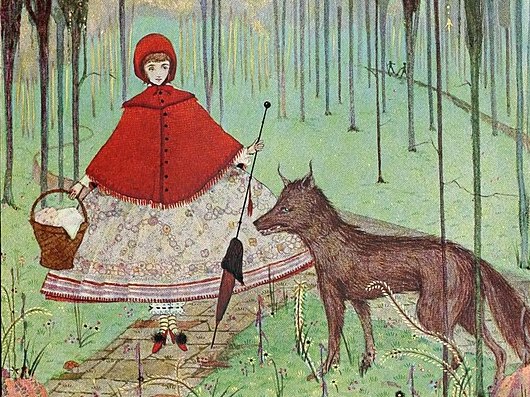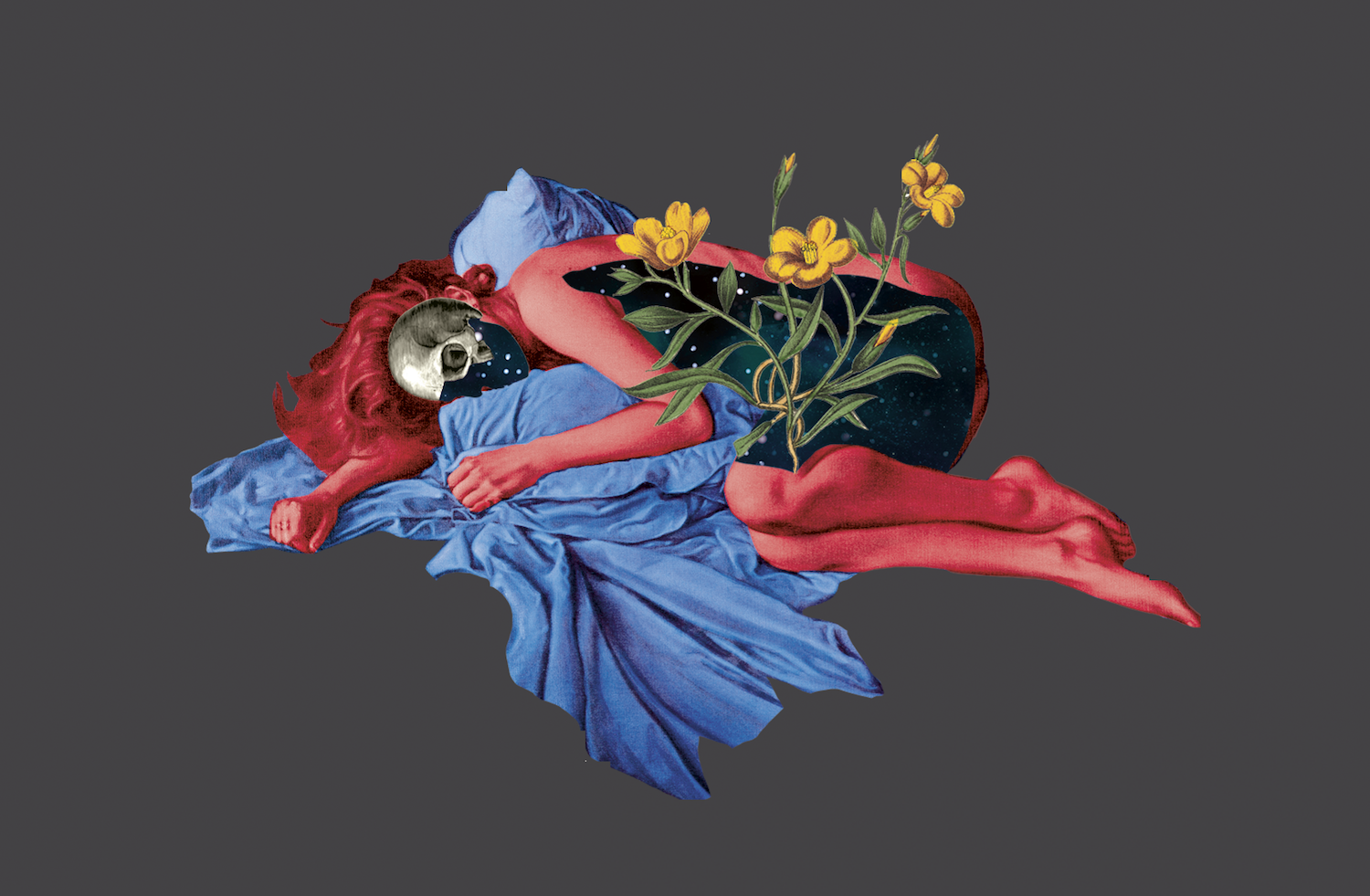interviews
INTERVIEW: Kelly Link, author of Get in Trouble

I don’t usually admit this kind of thing when it comes to other writers, but I’m a huge Kelly Link fan — like in a very nerdy way. If I had the power to write fiction like one contemporary writer, I think I’d probably say Link. She has this uncanny ability to stretch a short story way past the boundaries of both length and possibility without ever crossing the line into fantasy. And no, I don’t mean that in a phantasmagoric, Borgesian kind of way (although you can also see his influence from time to time when reading Link); rather, Link’s work feels fully realized, emerging from her brain as truly and impossibly colored. She’s the sort of writer always able to surprise me, even though I’ve finished all of her other books, even her latest collection, Get In Trouble. Link’s writing has been compared to everything and everybody, from H.P. Lovecraft, to Buffy the Vampire Slayer and hardboiled noir writers, but stands out in its originality and idiosyncratic loveliness. Like her prose, Link is one of the easiest writers to get obsessed with, but also nearly impossible to explain.
Jason Diamond: This is the one long one, I swear: Probably one of my favorite lines I’ve read in a long time is in “I Can See Right Through You”: “Florida is just California on a Troma budget.” I liked it because not only does it sum up Florida in maybe the most perfect way I can imagine, but it gives me a chance to ask you about Florida. I was thinking about how a number of my favorite current fiction writers (Karen Russell, Sarah Gerard, Laura van den Berg, a few more) either grew up or spent a lot of time in Florida, and when I mentioned this on Twitter, people named a handful of other writers including you since you were born in Miami. My question is: what kind of influence do you think particular places have had on you as a writer? Do you think originally coming from somewhere as strange as Florida has influenced your work more than the east coast, or does it not factor in?
Kelly Link: Let me hedge, for just a second, and say that that line is from the point of view of an actor who lives in L.A. Not mine! I love Florida in all of its weird, overgrown, lizardy splendor, even if the physical me wilts once the temperature and humidity get over a certain point. Say, 89 degrees. I grew up in North Carolina, and Tennessee, and Florida — I hadn’t really done much with those places as settings until the stories in this book. Maybe I needed a certain amount of distance and time before I could think about those places as a writer. I certainly grew up loving the mystery novels set in Florida (John D. MacDonald, Carl Hiaasen, and so on) and so maybe I thought of Florida as more of a landscape for mysteries than a landscape for the fantastic. The development where we lived was mostly wilderness, outside of a few blocks, and it was used more than once as a dumping ground for murder victims. Anyway: hard for me to say what kind of influence place has had. I expect it’s had one, but it’s easier for me, instead, to see the influence of books and writers.
JD: What about teaching? How does teaching help you as a writer?
KL: I love teaching because I love the work of the workshop. I went through an MFA program at the University of North Carolina at Greensboro, and straight out of that I went to the Clarion Workshop in Michigan. Clarion is a six-week workshop in which you have six different instructors, all with very different points of view, and ideally produce six stories. I’ve taught at Clarion quite a lot. I’m asked, on occasion, to teach for a semester at different programs. I don’t know, precisely, how it helps me as a writer. Certainly I don’t get as much writing done while I’m teaching. But it’s a point of access for me into workshops where writers with, one always hopes, different perspectives on how stories work will sit around for a couple of hours talking about how they read, and what they notice, and what threw them for a loop — and I crave that. If I could design my own workshop, I’d get a poet and a fiction writer to teach together. And bring in a bunch of visual artists — (And yeah, I know Lynda Barry teaches a pretty spectacular workshop!) — just to expand the scope of the discussion about what narrative is able to do and how.
JD: Probably my favorite novel from last year was Helen Oyeyemi’s Boy, Snow, Bird. I love the way she takes stories that are familiar to us (in the case of the latest book, in case you didn’t read it, Snow White) and reshapes it into something that’s her own. I think part of the reason I love your stories so much is because I feel like you tend to do something similar, where you play with certain genres that I love, but you make them totally your own. Do you ever find yourself working on a story and thinking, “This is moving too far in a certain direction, I need to clamp down and try something else”? Because whenever I read one of your stories, I think I know which direction you’re heading in, but I’m always happy to find I was wrong.
KL: I love Helen Oyeyemi’s work so much! I heard her read at the Brookline Booksmith last year: something that had been a life goal. I’ve said this before, but why not say it again: the fantastic is a flexible metaphor. With a fairy tale or a story about an impossible thing, you’ve introduced an element that readers will try to assign a meaning to. (Actually, we do this with the mimetic bits as well, but with vampires or ghosts, the reader is on slightly shakier ground, and therefore you can make them work a bit harder to find their footing while still entertaining them.)
I think that we want to be led slightly astray when we’re being told a story. Just a little wrong footed.
Sometimes I think of narrative progression less as plot and more as a series of turns or reversals. You begin to suggest the direction that a character or story may be taking, and let the reader begin to supply the rest of the story or set of possible actions, or general emotional state. If you do what the reader expects, the story slows down. And if you do something that feels false to the reader, the story breaks. So there’s a lot of fine-tuning involved. I think that we want to be led slightly astray when we’re being told a story. Just a little wrong footed. Even if it’s only by the way that the sentences have been put together.
JD: How long, generally, do you work on a story?
KL: Depends on the story. “The New Boyfriend” and “The Summer People” both took about a week to write. “I Can See Right Through You” took over a year. I used to think that the stories I loved best were the fast ones to write, because I didn’t have time to let the approach get stale. But in fact, I love “I Can See Right Through You” — maybe because once I figured out how to make it really work, it only took a week to do that work.
JD: Do you have a daily writing routine?
KL: I don’t write on a daily basis. I don’t have enough stick-to-it-iveness. But I am often hanging out, on a daily basis, with people who manage to get a great deal of writing done day in and day out. I spend a lot of time loathing the sentences that I put down on the page. Once I’m past that phase, it doesn’t really matter what the routine is (coffee shop, someone else’s house, my dining room table), I’m pretty fast. I go back to the start of whatever I’m working on, every half hour or so, and revise my way back to where I left off. I have my headphones on, I’m checking email, I look at Twitter and Tumblr, and drink a lot of coffee. I need a lot of distraction to work.
JD: Whenever I interview a writer with a short story collection, I always mention this quote I read by Isaac Bashevis Singer. I don’t recall the exact phrase, but it’s basically short stories are more difficult than novels because you have such a limited amount of time to write everything. Why do you think you’re drawn to writing them?
KL: I have no idea! I loved reading anthologies and collections as a kid. I wrote a short story for a workshop at Columbia, taught by Raymond Kennedy, and liked both the workshop and the feeling of having done something that wasn’t terrible. After I got out of college, I eventually applied to a workshop because I thought it would be awesome to spend more time writing short stories and hanging out with other people who wrote them. I’ve spent more than half of my life, at this point, thinking about short stories. But not so much time thinking about why short stories. Actually, what I’ve been thinking about recently is paragraphs. And I’ve been told that thinking about paragraphs is something that you do when you’re moving more into novel space.
[Editor’s note: read Kelly Link’s story “Stone Animals” at Electric Literature’s Recommended Reading]









